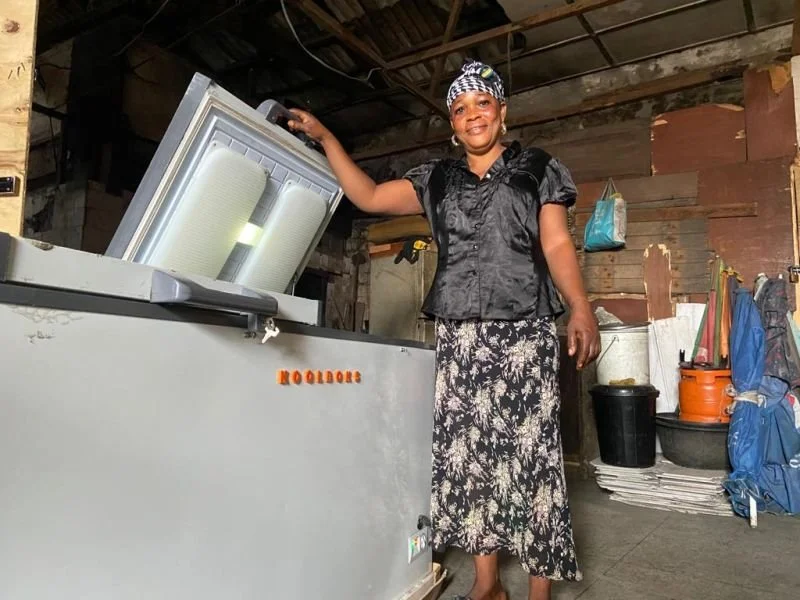Changing the Narrative from Concession to Catalyst: The Business Case for Investing in Women
by Adesuwa Okunbo Rhodes, Founder & CEO, Aruwa Capital
Around the world, women continue to be shut out of capital flows, not because they lack the ideas, the skills or the returns, but because they are routinely overlooked in systems designed without them in mind. At Aruwa Capital, we believe this chronic undercapitalisation is not only a missed moral imperative, but also a missed market opportunity. In Africa’s fast-growing economies, where women are the backbone of sectors like retail, agriculture, and healthcare, excluding them from capital flows slows everything down.
Photo credit: Koolbooks
Female entrepreneurs receive just a fraction of the available capital in private markets, and in Africa, the gap is especially stark. In 2024, female founders on the continent secured only 2% of total venture funding, the lowest level since 2019. Women-led startups raised just $48 million, while their male counterparts raised nearly $2.2 billion during the same period.
This discrepancy exists despite mounting evidence that female-led businesses are not only viable, but they also often outperform. According to McKinsey, closing gender gaps in Africa’s workforce could add $316 billion to the continent’s GDP by 2025. Meanwhile, data from UBS shows that gender-diverse teams are more likely to deliver above-average profitability and value creation over the long term.
Access to funding isn't just about fairness, it's about outcomes. Businesses that receive early funding grow faster, create more jobs, and bring more innovation to market. When women don’t receive capital at the same rate, we’re not only missing out on equity, but we’re also missing out on growth.
Changing the Narrative from Concession to Catalyst
At Aruwa, we are not here to fill a quota. We are here to prove that when women are provided with capital, they outperform expectations. Our investment thesis is not centred on concessions or charity; it’s rooted in commercial logic. Diverse teams make better decisions. Inclusive investing is smart investing. That’s why we’re intentional in allocating capital to companies led by women, founded by women or providing goods and services to women who are traditionally overlooked.
We’re proud members of 2X Global, but for us, this isn’t about ticking boxes. Every single Aruwa investment must meet at least one 2X Criteria because we are firm believers that impact should always be measurable.
Graphic credit: Aruwa Capital
Today, 70% of the companies in our portfolio are either founded or led by women, with women owning an average of 33% equity across our businesses. Our boards average 37% female participation, and the ripple effects go even further: our companies serve over 611,000 customers, 63% of whom are women.
We’re also actively supporting 2,470 direct jobs, 42% held by women, with 70% of all roles occupied by young people under 35, and 44% of those by young women. In total, our portfolio supports over 205,000 direct and indirect jobs and has directly contributed to the creation of 810 new jobs in the last 12 months alone.
Validating the Strategy: Fund II at $35 Million
This is why we’re proud to announce the second close of Aruwa Capital’s Fund II at $35 million, representing 90% of our $40 million target and backed by a coalition of bold investors who recognise that gender lens investing is no longer niche: it’s necessary. Institutional LPs like the Mastercard Foundation Africa Growth Fund, Visa Foundation, Bank of Industry, British International Investment (BII), and EDFI Management Company through ElectriFI have all affirmed that gender-smart investing isn’t just a moral cause, it’s a profitable one. From the success stories which emerged from our $20 million first fund, Aruwa Fund I, which closed in 2022, we have been able to validate our gender lens investing strategy and mobilise more institutional capital to double down on a proven investment strategy.
“Our investees have already generated $147 million in value chain revenue for agents, distributors, smallholder farmers, and retailers. And they’re not just paying people, they’re paying well: up to 15x the national minimum wage, and generating millions in tax revenue for the government. ”
In a market that often sidelines women as a risk, this fund is a counter-narrative: a signal that diverse founders are investable, that inclusive capital allocation drives superior returns and outcomes, and that Africa’s economic future depends on how capital is distributed today.
Our investees have already generated $147 million in value chain revenue for agents, distributors, smallholder farmers, and retailers. And they’re not just paying people, they’re paying well: up to 15x the national minimum wage, and generating millions in tax revenue for the government.
With this momentum, we are now actively exploring an upsized fund of $50 million, with a hard cap at $60 million. This isn’t just about capital raised, it’s about what this capital unlocks: more jobs, more women investing in healthcare and education for their children, more inclusion, and more resilient economies.
Founded in 2019, Aruwa Capital provides a practical, African-lived and led model for what inclusive, locally driven private equity can look like. Today, as we scale, we remain grounded in that vision: capital flowing into the hands of women, solving real problems, and building scalable businesses that transform economies from the inside out.
We are not just raising capital. We are raising the bar.
Read our latest impact report to learn more.


